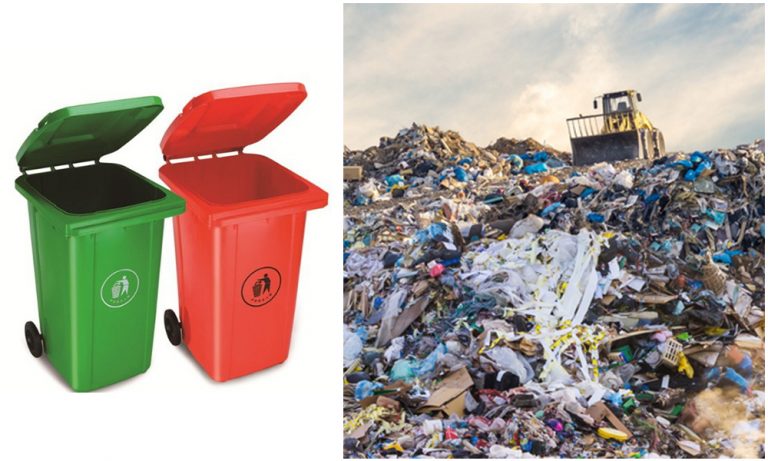
In a commendable initiative, Kathmandu Metropolitan City (KMC) has started segregating household waste and teaching the community to do the same. The program, trialling Ward Nos, 12, 18 , and 21 will be introduced in all wards.
According to the new scheme, the KMC will collect degradable waste for four days- Sunday, Tuesday, Thursday and Saturday- a week, and non-degradable waste on Monday and Wednesday.
The KMC organised a rally at Ward No 18 on Sunday to generate awareness among the locals about its new waste collecting programme.
Speaking at the rally, Nhuchchhe Kaji Maharjan, ward chair, said that green-coloured vehicle would come to collect degradable garbage and the red one to collect the non-decomposable waste.
He urged the local people to use separate dustbin for two kinds of garbage and bring the degradable garbage when the green vehicle is in sight and non-degradable garbage when there is red vehicle.
The KMC has also provided training to locals on rooftop garden in all wards to manage the garbage from the source level. They were taught to prepare compost by using the compost bins. The locals are found utilising the compost bins properly, he said.
Sanu Maiya Maharjan, chief of community mobilization branch of Department of Environment Management, said that recently 75 locals of Ward No 18 brought the compost bins. “Those who have the compost bins do not have to give the decomposable garbage to the KMC,” she said.
Solid Waste Management Act 2068 has a provision to make locals responsible to manage the household waste materials.
The KMC has made an effort to manage waste in co-ordination with locals, said Hari Kumar Shrestha, chief of the Department of Environment Management.
The degradable waste will be directly sent to the landfill site in Teku and to produce compost manure, he said. Daily 1,045 tonnes of waste is produced in the Kathmandu Valley. The KMC alone produces around 516 tonnes of waste. Some private companies and government organistions have been collecting and transporting the garbage to the landfill site for final management.
The KMC is planning to transform 60 per cent bio-degradable waste into compost manure by building a compost plant. Of the 40 per cent non-degradable waste, 30 per cent will be recycled and remaining 10 per cent non-usable waste will be dumped in the landfill site.




